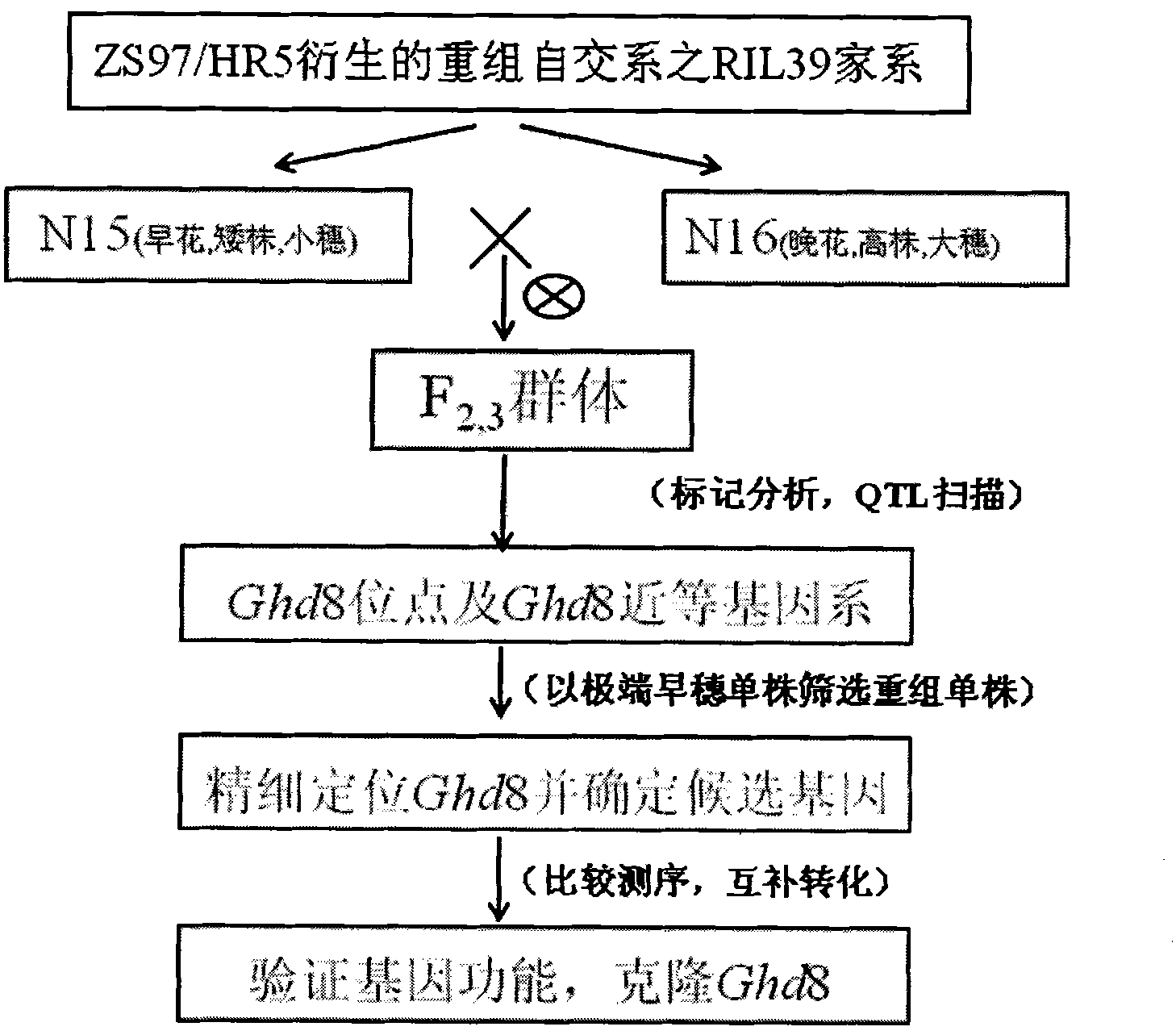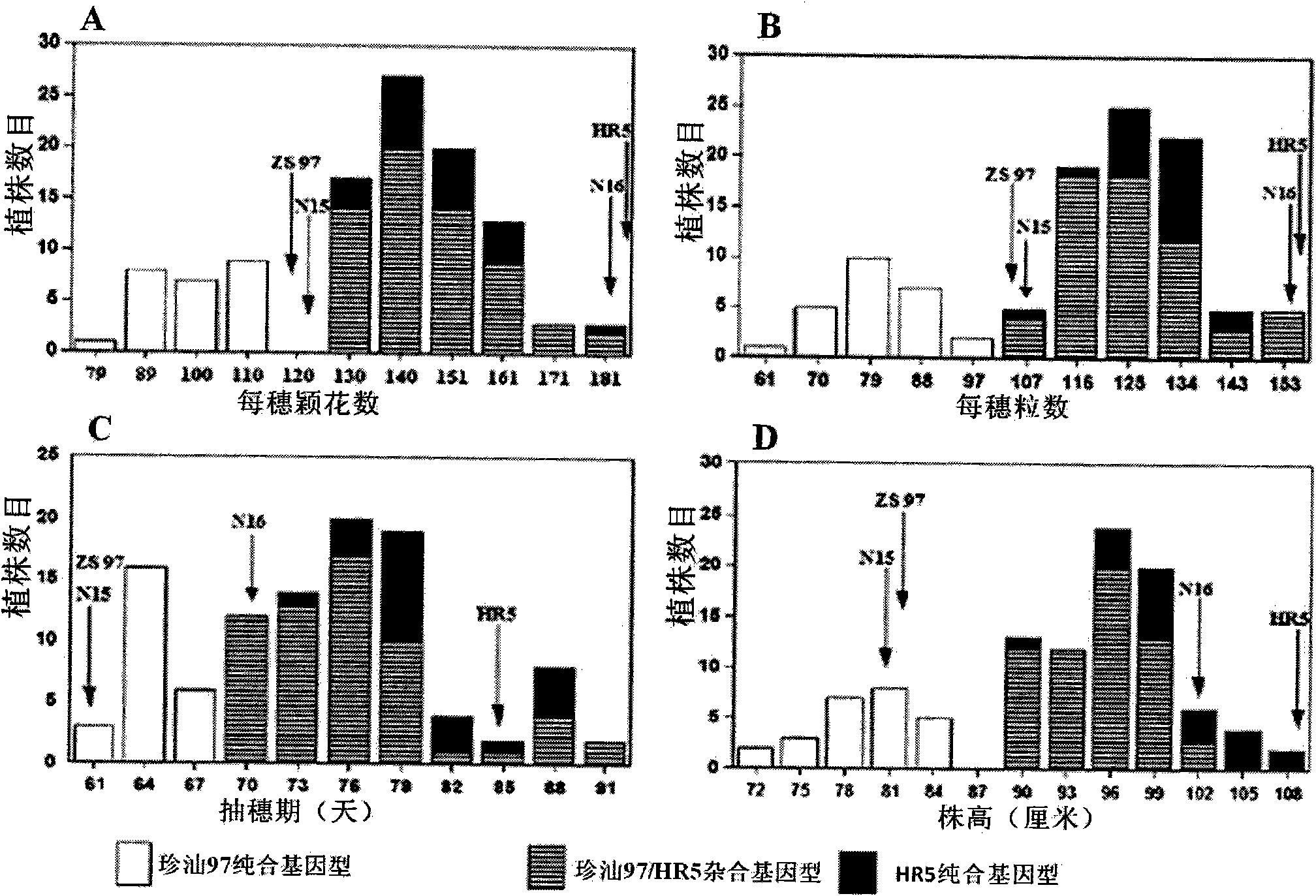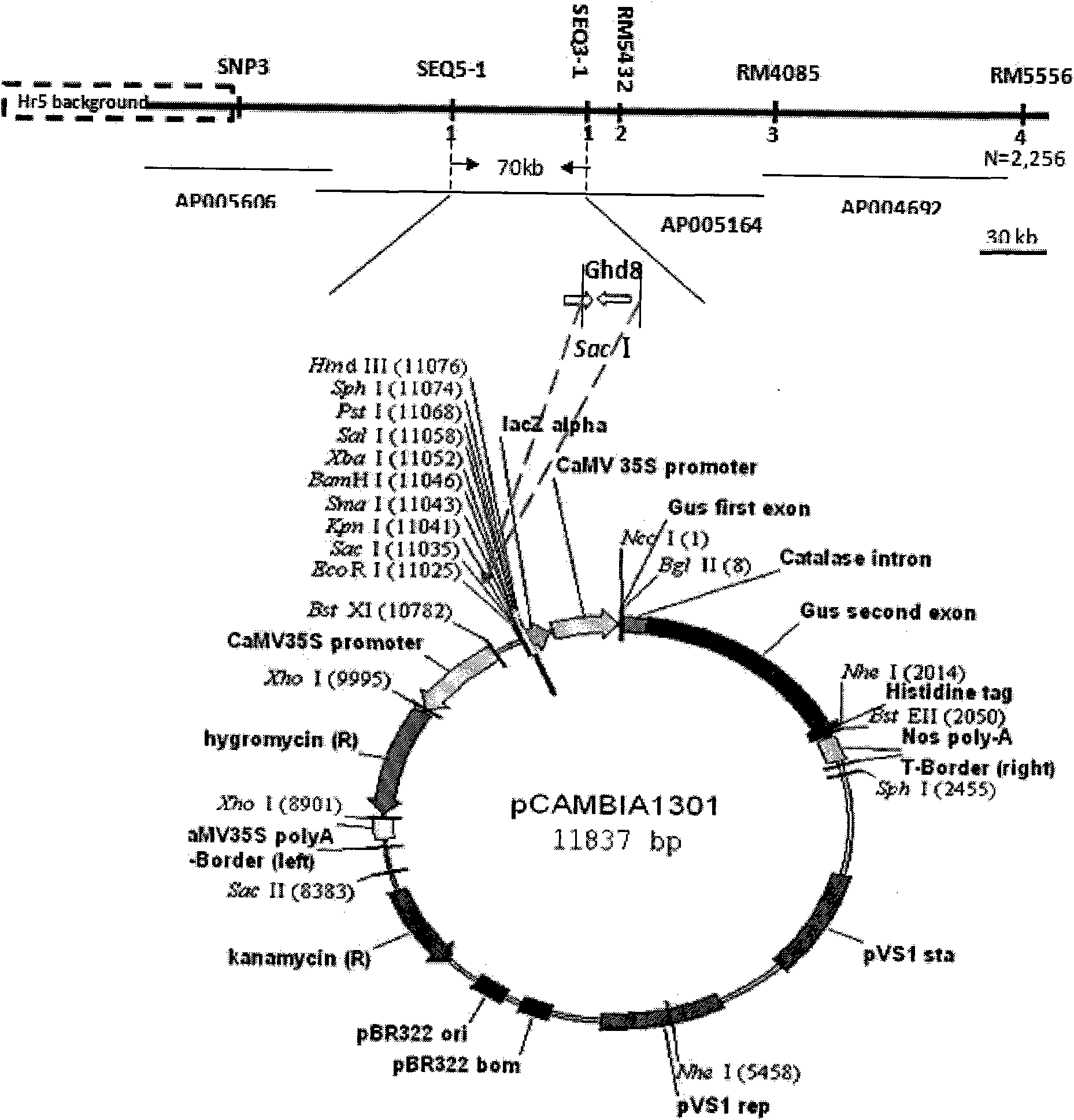Clone and application of pleiotropic gene Ghd8 for controlling yield, florescence and plant height of rice grain
A technology for grain yield and plant height, applied in the field of plant genetic engineering, can solve the problems of delayed heading stage, reduced production and application value, etc., and achieves the effect of simple method and avoiding time-consuming
- Summary
- Abstract
- Description
- Claims
- Application Information
AI Technical Summary
Problems solved by technology
Method used
Image
Examples
Embodiment 1
[0032] Example 1: Fine mapping of the Ghd8 gene
[0033] 1. Construction and evaluation of near-isogenic lines
[0034] according to figure 1 According to the technical route, the recombinant inbred line F7 population of ZS97 and HR5 was planted, and it was found that the phenotypes such as heading date, plant height, and grain number per ear appeared in the RIL39 family (Table 1). Select the N15 single plant of dwarf plant, early panicle and small panicle and the N16 single plant of tall plant, late panicle and large panicle, and refer to the rice genetic linkage map published by Temnykh et al. (Temnykh et al., 2000; Temnykh et al. ., 2001), selected 126 SSR marker pairs with polymorphism between N15 and N16 for background screening, and at the same time, F 2 The population was scanned for QTL (Table 2), F 2 The phenotype showed 3:1 segregation, plant height, ear size, co-segregation at anthesis and low-value traits were recessive (see attached figure 2 ). The QTL is lo...
Embodiment 2
[0044] Embodiment 2: Isolation and cloning of Ghd8 gene
[0045] According to the predicted candidate gene sequence, amplify the PCR fragment to screen the 9311BAC library, select the clone 50N15 containing the candidate gene LOC_Os08g07740, use the restriction endonuclease SacI to digest the positive clone, and perform subcloning to obtain a 10.26K b fragment. This fragment contains the sequence of 3.5kb upstream of the transcription initiation point and 5.7Kb downstream of the termination site, and only one complete gene of the candidate gene is contained in this fragment.
[0046] This fragment was ligated into the binary vector pCAMBIA1301 ( image 3 ), after the sequencing confirmed that the transformation vector was correct, the genetic transformation method mediated by Agrobacterium was used to obtain the transgenic rice. The specific steps of the transgene of the present invention are as follows:
[0047] The correctly cloned plasmid was introduced into the recessive...
Embodiment 3
[0241] Example 3: Searching for Ghd8 allelic types that differentiate different effects produced
[0242] Direct sequencing method with PCR products: 8 pairs of primers (see Image 6 ) to amplify each segment of the Ghd8 gene. The PCR product was digested by SAP and EXOI at 37°C for 1 hour (digestion reaction system 8 microliters), denatured at 80°C, and 2.5 microliters of the digested product was sequenced and amplified with the ABI sequencing kit Reaction (the first step is denaturation at 96°C for 2 minutes, the second step is denaturation at 96°C for 10 seconds, renaturation at 50°C, extension at 60°C for 4 minutes, this step is repeated for 33 cycles, the third step is 4°C for 10 minutes), the amplified product Precipitate with 95% ethanol: 3M sodium acetate (pH4.8) = 25:1, react with 26 microliters per well, collect the precipitate by centrifugation at 3000 g after precipitation for 15 minutes, take the supernatant and add 75 microliters of 70% ethanol After washing, ce...
PUM
 Login to View More
Login to View More Abstract
Description
Claims
Application Information
 Login to View More
Login to View More - R&D
- Intellectual Property
- Life Sciences
- Materials
- Tech Scout
- Unparalleled Data Quality
- Higher Quality Content
- 60% Fewer Hallucinations
Browse by: Latest US Patents, China's latest patents, Technical Efficacy Thesaurus, Application Domain, Technology Topic, Popular Technical Reports.
© 2025 PatSnap. All rights reserved.Legal|Privacy policy|Modern Slavery Act Transparency Statement|Sitemap|About US| Contact US: help@patsnap.com



